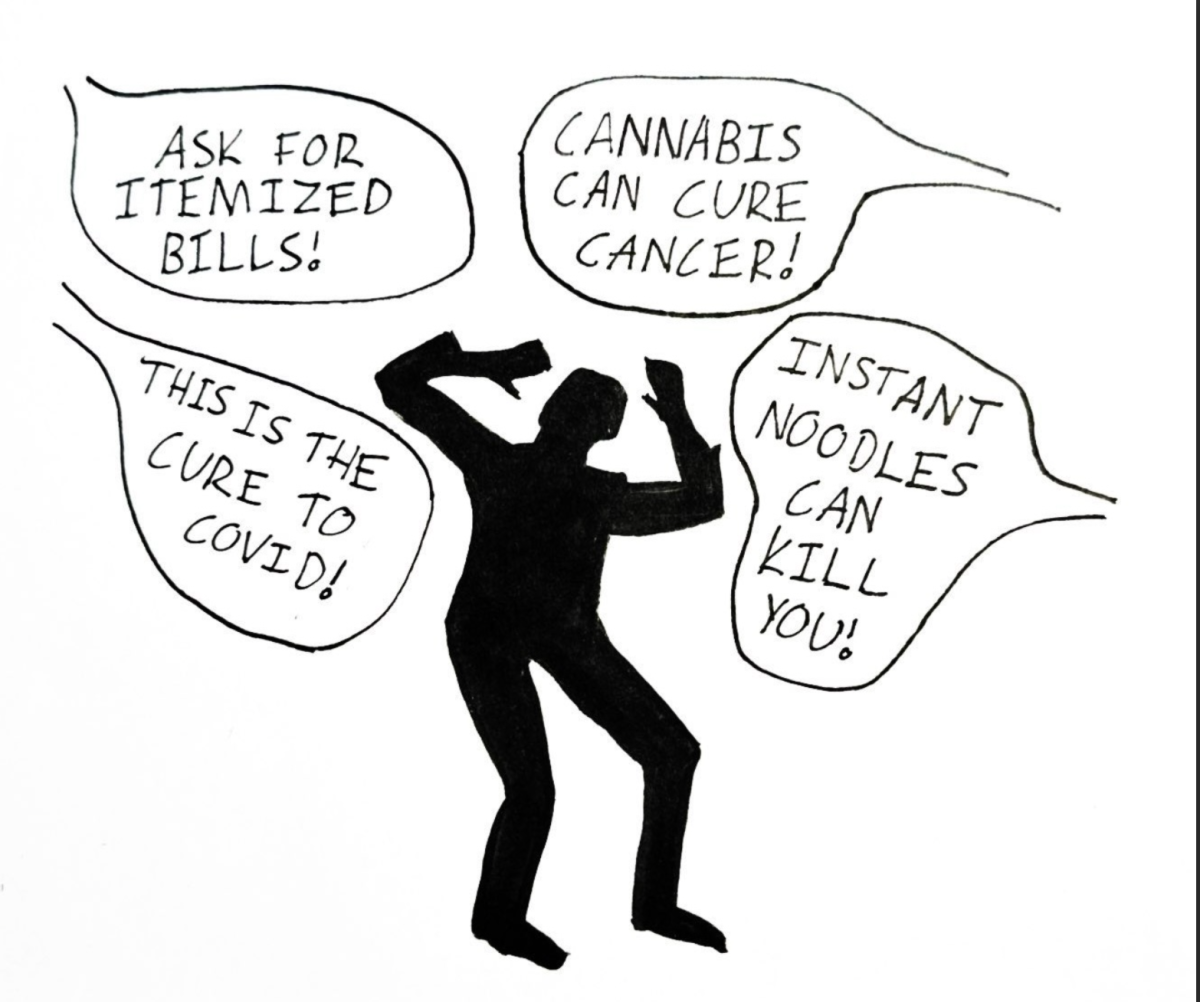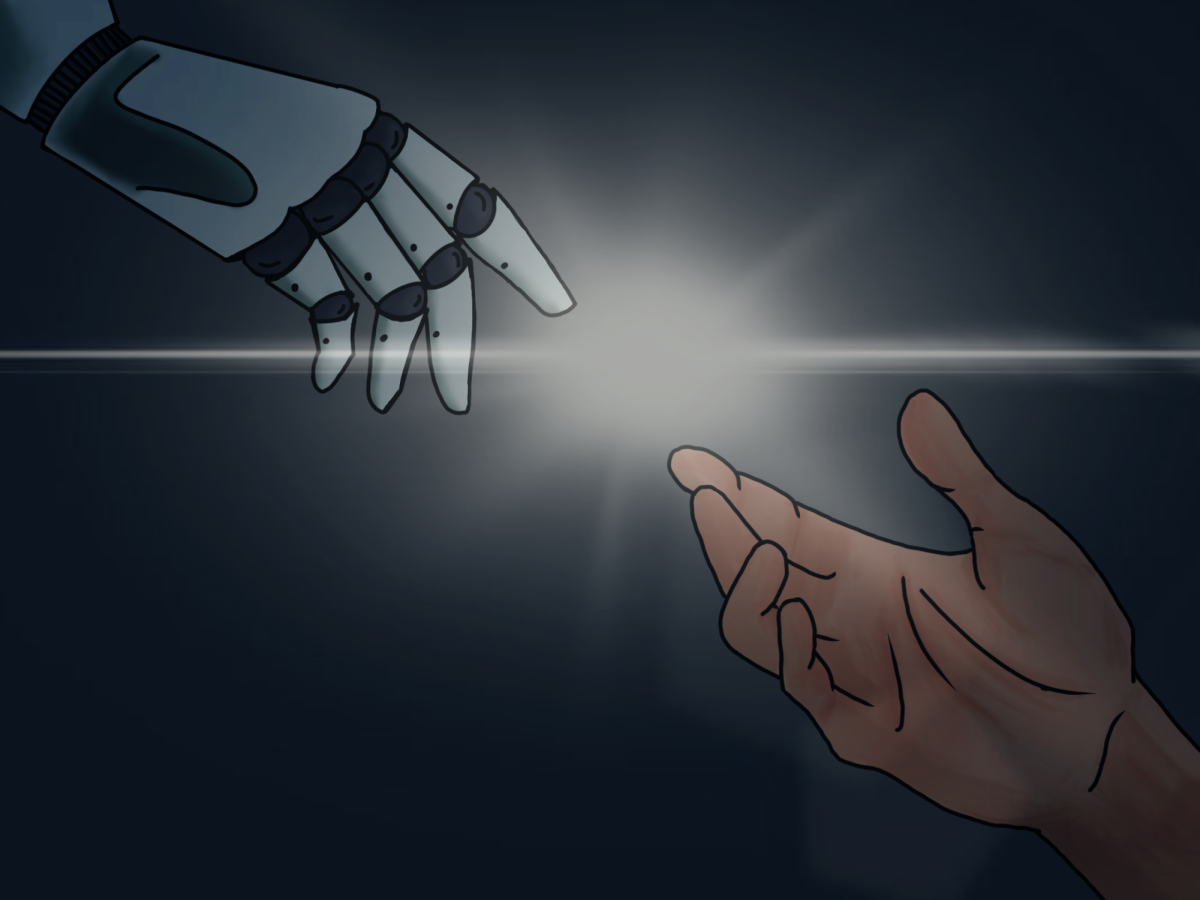We all remember the advent of COVID-19 when we witnessed the country growing increasingly afraid that the disease would spread. Our teachers denied that any real harm would be done in order to distract us from our fear of the imminent danger; we were all constantly influenced by the numerous articles being posted online revolving around the COVID-19 disease, its effects, and its unknown cure.
As the COVID-19 pandemic forced multitudes of people to retreat back into the safety of their homes, there was a lot of fear surrounding the disease itself; this prompted the advent of the healthcare infodemic. Many news sources and social media shared countless pieces of advice on how to prevent COVID-19 and how to cure it, even though the real vaccine was nowhere near found at that point. On May 5th, 2021, a political official, Surendra Singh, reported that drinking cow urine would prevent someone from getting COVID. There was immediate backlash, with healthcare officials stepping out to say that leading political and social figures should stop promoting and recommending treatments that were obviously unscientific and harmful.
However, this infodemic isn’t confined to the spread of information related to COVID; many healthcare “influencers” are constantly posting information related to self- and health- care. Many regard this as a good thing because it contributes to the increased awareness of the public and makes it harder for the public to be medically manipulated or fooled. However, there is no guarantee that all the information being released is medically accurate, and medical officials are not completely sure of the magnitude of this issue.
The issue with this widespread availability of health information is our inability to fact-check all the information before it is put out. This makes it almost impossible to curb the spread of potential misinformation, which puts the public at risk of causing harm to themselves and others. “Celebrity doctors” have been under fire for possible discrepancies and efficacies in the advice they provide to their audiences, but this hasn’t affected their ability to continue to spread medical information. According to a 2014 study, only around 54% of the advice given by such influencers has real scientific evidence backing them. Some of the claims made are so ridiculous that it is crystal clear they are false; however, the fact that they have some, even the smallest, fraction of truth to them allows for them to be presented to the public as pure fact. One such example is the claim that instant noodles can kill a person–this piece of medical misinformation was prevalent in 2019, especially. While it is true that eating an exorbitant amount of instant noodles can cause health issues, the evolution of these issues is far more gradual than what was made out to be in the media.
More concerningly, false information isn’t always as innocent as this. There was the idea circulating on the internet that the use of cannabis could cure cancer. This fake news causes much more harm than the one about instant noodles. It caused certain cancer patients to try cannabis in a desperate attempt to rid themselves of their illness which could potentially have caused further damage to their bodies and slowed down the progress of healing and recovering from cancer. Additionally, many people are resorting to trying these “tips” out instead of actually consulting healthcare professionals who have the proper knowledge to assist them. This prevents the more gullible part of the population from getting the care they need and instead encourages them to try these useless, even harmful, home remedies.
This spread of healthcare-related information can actually be beneficial to the public. Remember when that tip about asking for itemized bills was blowing up on TikTok? For context, a lot of influencers, including healthcare professionals, recommended that people ask for itemized bills on hospital visits to see what they were actually paying for; the general consensus was that hospitals were ripping patients off by charging for treatments the patient didn’t even get or charging for something twice. Such tips expose the frauds committed by hospitals and prevent them from benefitting monetarily and taking advantage of patients. They also lead to exposing the monopolies that exist in every region of the American healthcare system. The issue has come to a point where even the highest insurance doesn’t cover some life-saving treatments. In an environment such as this, it is necessary to have individuals and groups who speak out about and make a difference through spreading useful information.
On the whole, the healthcare infodemic has both positives and negatives to it. It is up to the public to determine what to believe and what to not; however, such influencers and informants are being encouraged and even forced to stop spreading misinformation regarding such crucial topics, especially surrounding the maintenance of the human body. The magnitude of the issue is far greater than anyone knows for sure, but it’s important to make sure that people don’t immediately believe in whatever they hear, even if it comforts them more than fact does.






































